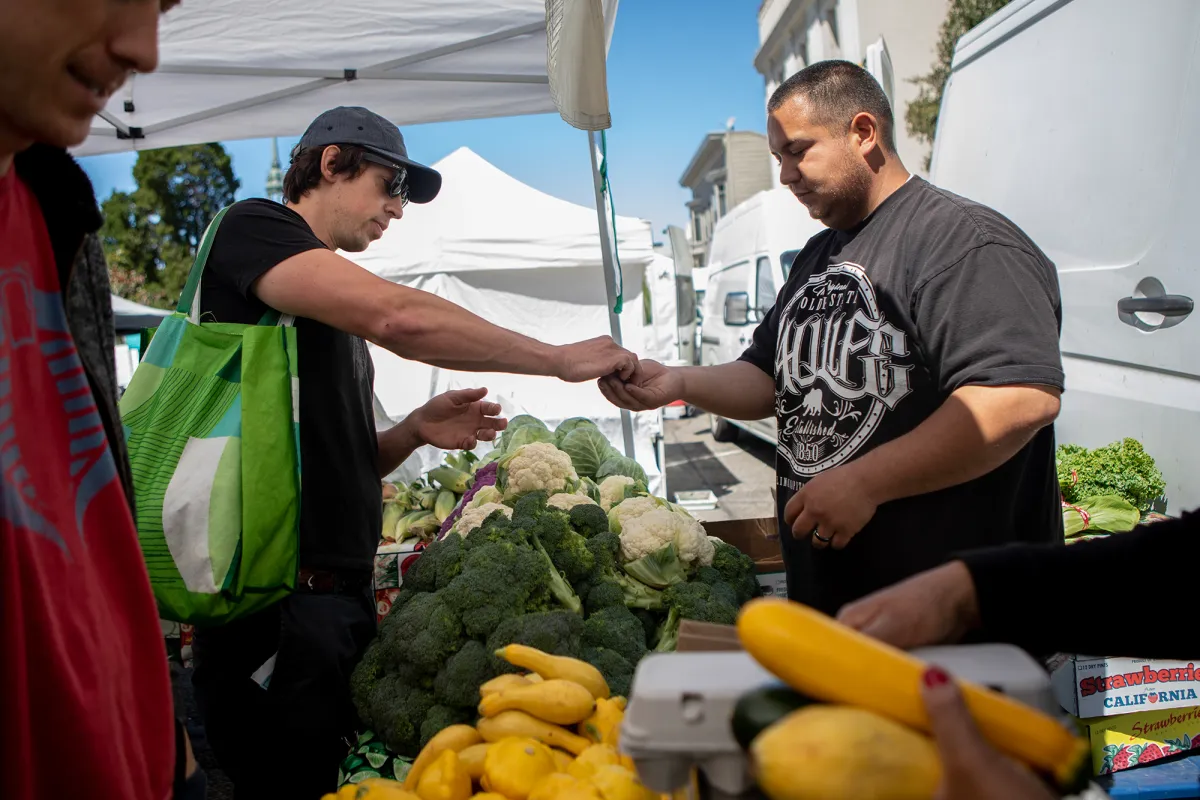This story was originally published by CalMatters. Sign up for their newsletters.
California, 18 other Democrat-led states and Washington, D.C. are suing the Trump administration to halt the U.S. Department of Agriculture from collecting sensitive information about people who receive federal food vouchers, known as SNAP.
The Trump administration told states to provide the data by July 30 or risk losing federal funding to administer the program. California receives $1.3 billion annually to distribute about $12 billion a year to 5 million residents who rely on the food vouchers, called CalFresh in California. About 13% of the state’s population receives the aid.
“The purpose of what the Trump administration is doing here is to target immigrant communities,” said Michigan’s Attorney General Dana Nessel, during a press conference Monday. She said Trump’s actions “send a chilling effect to American citizens, and to tell them that if they apply for programs that they are perfectly entitled to under law, their most personal and sensitive data is going to be shared with all kinds of people, and it’s going to have the impact, and I think it already is, of scaring people away from seeking these increased incredibly important programs.”
Residents without lawful legal status in the U.S. are not eligible for SNAP benefits. However, during Trump’s first term, he proposed eliminating benefits even for “mixed-status” families where at least one person in a household lacks legal status.
In another example of policies that put California at odds with the Trump administration’s effort to crack down on immigrants living in the U.S., the state has tried to expand food benefits to some immigrants without legal status. In 2022, California became the first state in the nation to offer about $165 a month in food benefits to about 35,000 immigrants, mostly to recent green card holders. That expansion was part of the California Food Assistance Program, or CFAP, a state-funded version of food stamps.
Advocates for that effort argued many farmworkers toil in fields for decades at low wages, providing food to the rest of the nation, and then are unable to buy enough to eat, especially when they become senior citizens.
Why states are suing
Attorneys general that are filing the suit argue that the Trump administration’s policy is “arbitrary and capricious,” violates the 10th Amendment that protects states’ rights as well as various privacy laws.
“We’re seeing a number of different cases recently where there’s this Spending Clause violation, where new conditions that Congress never put on the funding are being added by the executive branch after the fact,” said California Attorney General Rob Bonta. “They can’t do that.”
The suit will be filed Monday in the federal Northern District of California. It is the 35th time in 27 weeks that California has sued the Trump administration.
“SNAP applicants provide their private information on the understanding, backed by long-standing state and federal laws, that their information will not be used for unrelated purposes,” Bonta said.
The Trump administration has tried to tap several state databases to quickly amass troves of sensitive personal information about hundreds of millions of people. Using that information is part of Trump’s effort to fulfill his campaign promise of carrying out the largest mass deportation effort in U.S. history.
His administration says collecting the data is aimed at preventing waste and fraud. Trump issued an executive order in March that ordered his administration to have “unfettered access to comprehensive data from all state programs that receive federal funding.”
In May, NPR reported that the administration sought Social Security numbers, addresses and, for one state, citizenship data, for SNAP recipients. The orders came from the U.S. Department of Agriculture and DOGE, the previously Elon Musk-led White House office that sought to slash government spending and was met with numerous lawsuits.
Bonta said the Department of Agriculture “has never once asked states to turn over private and sensitive data on such a massive scale.” Now, it seeks five years of data about recipients, according to the attorneys general.
California has already sued Trump for his administration’s efforts to collect personal data from people who rely on government services. The Department of Homeland Security, which oversees immigration enforcement, obtained access to people’s data held by the Internal Revenue Service and the U.S. Health and Human Services Agency, including private medical information and other personal details about Medicaid recipients.
Nessel added that California and New York, the states leading the suit, contribute more in taxes to the federal government than they receive in federal services.
“That’s our money,” Nessel said. “We paid tax dollars to the federal government, then the federal government, you know, routes that money back to us in the form of these essential programs.”
She added: “And so when you cut off programming like SNAP, it just goes into the pockets of Trump’s friends and billionaires, but we already paid for this stuff.”

